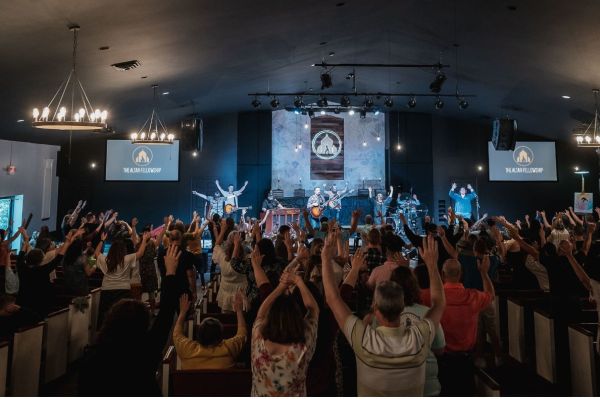Pastors to Utah Sheriff: God Is Not OK With Death Penalty
Utah church leaders expressed their distress Wednesday in a letter written by a county sheriff asserting that God is OK with the death penalty.
Pastors from two different denominations in the state said that Weber County Sheriff Terry Thompson was misguided when he sent a letter to state law enforcement officers declaring that God is "OK" with capital punishment.
Bruce Davis Sr., pastor of New Zion Baptist Church, told the local paper the Standard-Examiner that Thompson likely does not realize the difference between the biblical teachings of the Old Testament and those of the New Testament.
Davis said the Old Testament called for a "tooth for a tooth," but Jesus changed the practice of retribution with peaceful practices such as praying for your enemies and forgiving them.
"Capital punishment is not in God's vocabulary system," Davis said to the Standard-Examiner.
Thompson, who had just been sworn into the sheriff's office Jan. 4, wrote an email to employees encouraging them in the Lord. But in the letter, he also shared about his past effort to join a death penalty firing squad.
The new sheriff had said "the death penalty is not just legally required, it is morally sound."
He likened it to a soldier taking a life on the battlefield or a police officer taking a life in order to protect civilians.
"It is OK because God is OK with it," he asserted.
Thompson emailed the letter to coworkers and posted it on the department's Facebook site. After the letter began attracting criticism, Thompson told local television news channel KSL TV that the letter was meant to boost employees' morale.
In contrast to the local pastors, The Ethics & Religious Liberty Commission of the Southern Baptist Convention takes a position that supports capital punishment as a government tool to enforce order.
The Southern Baptist Convention in 2000 approved a resolution supporting the "fair and equitable use of capital punishment by civil magistrates as a legitimate form of punishment for those guilty of murder or treasonous acts that result in death."
The convention's resolution cited God's authorization in Genesis 9 of capital punishment for murder and Romans 13's approval of the death penalty as "a just and appropriate means" to be used by government authorities to support of its position.
Still, several civil rights era ministers are opposed to the death penalty because they say it unfairly targets African-Americans and the poor.
Joseph Lowery, past president of the Southern Christian Leadership Conference and known associate of Martin Luther King, said in a 1990 speech that the death penalty was a matter of inequality and iniquity.
"By embracing the executioner, we invest in a morally bankrupt and an ineffective, unjust solution of social conflict," he preached.
Southern Baptists acknowledged concerns of inequality in capital punishment during its 2000 conference. In the resolution, the authors called for capital punishment to be used only where there is "clear and overwhelming evidence of guilt" and urged the punishment dealt to deserving prisoners "as justly and as fairly as possible without undue delay, without reference to race, class or status of the guilty."
Sixty-two percent of American adults support the death penalty, while 26 percent oppose it, according to a Rasmussen telephone poll in June 2010.






















